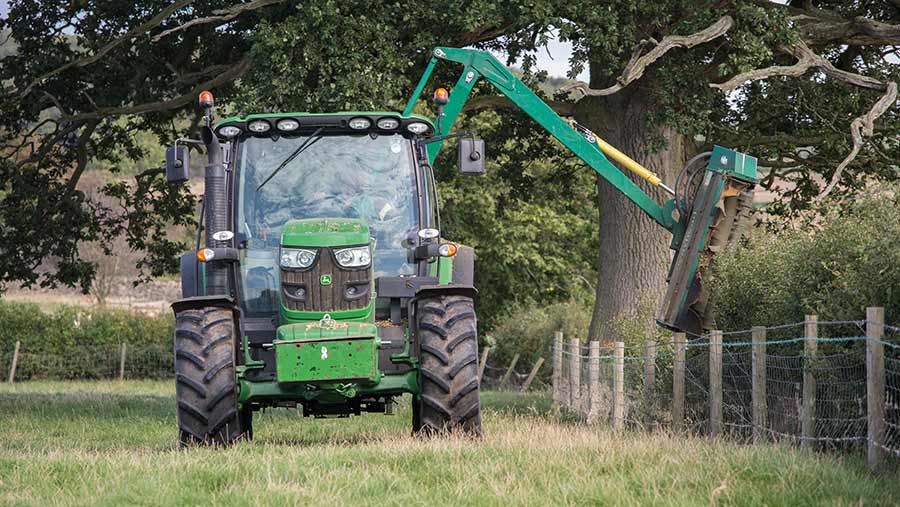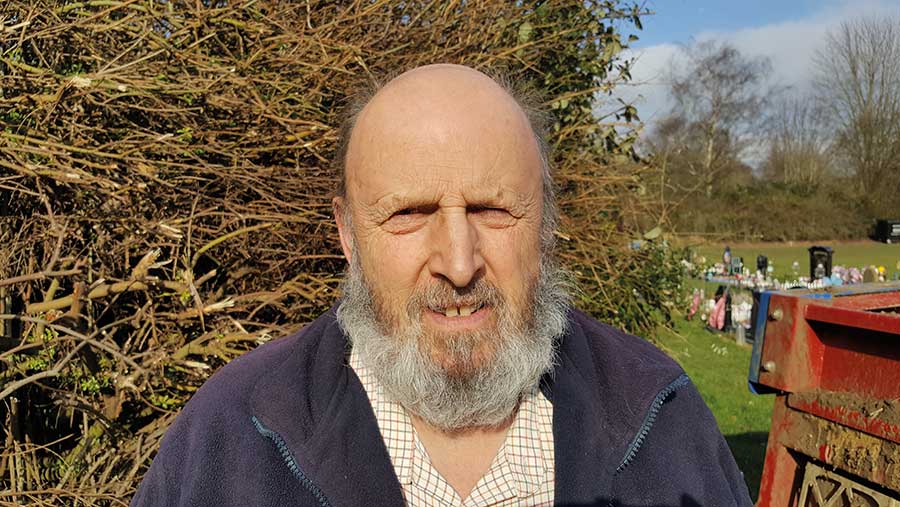Hedgecutting contractors feel the pinch amid shorter seasons
 © Tim Scrivener
© Tim Scrivener Agricultural hedgecutting contractors are becoming frustrated by the short hedgetrimming window and not being allowed to do their work due to the quicker turnaround between harvest and reseeding.
In previous years, farms have used smaller farm machinery to complete their harvest and cultivations, thus allowing more time for hedgecutting contractors to get on the land and complete their work.
But the present harvest situation means the machinery used is bigger and faster, and harvest, cultivations and drilling are completed much sooner.
See also: Contractors change JCB Hydradig to self-propelled hedgecutter
This is not allowing hedgecutting to proceed because, along with the shorter window of 1 September to 1 March, contractors are finding it difficult to be allowed onto the land once new crops are drilled.
Northamptonshire hedgecutting contractor Bob Rutt said: “It’s been six years since Defra banned hedgecutting for the month of August, and we are forced to sit it out when the weather is good.
“Since 2015 when the August ban was introduced, combines, cultivation and drilling equipment has got bigger and bigger.
“This, along with the more extreme weather conditions in recent years, is hampering operations.”

Bob Rutt
Wetter winters
Mr Rutt said because of the change in weather conditions and the possibility of winter flooding, more livestock farmers are requiring their hedges to be cut sooner and in the autumn, when conditions are more likely to be better to travel.
“If we go back in time, we used to start on the arable land in August straight after the combine had entered the field to cut the hedges on the inside,” he explained.
“The roadsides would be left to the winter months along with your grassland farmers.
“Now, I’ve got a situation where I have arable farmers and grassland farmers wanting me to cut hedges at the same time, before the grassland floods in the winter.”
The August hedgecutting ban has proved popular with conservationists, who maintain that some bird species are still nesting late into the month. However, farming organisations, including the NFU, have called for greater flexibility to allow contractors to trim hedges in August if it can be shown that birds have fled the nest.
Mr Rutt said the solution would be to put the date back to the 1 August, and for the Environment Agency to clean the river systems out so that flooding doesn’t occur.
“I’m not surprised that agricultural land floods in the winter, because the watercourses aren’t maintained in the same way that they used to be. They are neglected.”
Safety ‘is key’
Brian Thompson, an agricultural contractor based near Melton Mowbray, Leicestershire, said some farmers or farmers’ sons and daughters had decided to buy the equipment and do the work themselves, which was losing him business.
“Realistically, hedgecutting fees should be in the mid-£40/hour to even make a living, when you consider the need to pay for the latest machinery and the daily risk assessments and paperwork required to do the job safely,” he said.
“Public safety is key, in my view, but I know contractors who are not running with that. You’ve got some people coming into it with a cheaper trimmer and tractor and offering £30/hour. You cannot compete with that.”
Warwickshire-based hedgecutting contractor Chris Gardner said the narrow window was having an impact on the availability of work.
“Last season, the weather went against us. We never got the winter frosts, it was muddy and boggy and we weren’t able to get on the land,” he said.
“There are only so many hedges you can trim along roadsides. It’s frustrating to be sat out, particularly when we have had a lovely August.”
In February 2019, Defra secretary George Eustice hinted that he would make it easier for hedgecutting contractors to trim hedges outside of the cutting window after Brexit.
A derogation can be obtained from Defra to trim hedges in August for land that will be drilled with oilseed rape. Mr Rutt would like Defra to extend the derogation system to also cover arable land and grassland that floods regularly due to climate change.
A Defra spokesman said: “The hedgecutting rules protect farmland birds during the important nesting and rearing period, and as such there are no plans at present to reduce the length of the cutting ban period.
“However, there are rules in place to enable farmers and land managers to cut or trim hedges throughout August, to sow oilseed rape or temporary grassland if necessary.”
